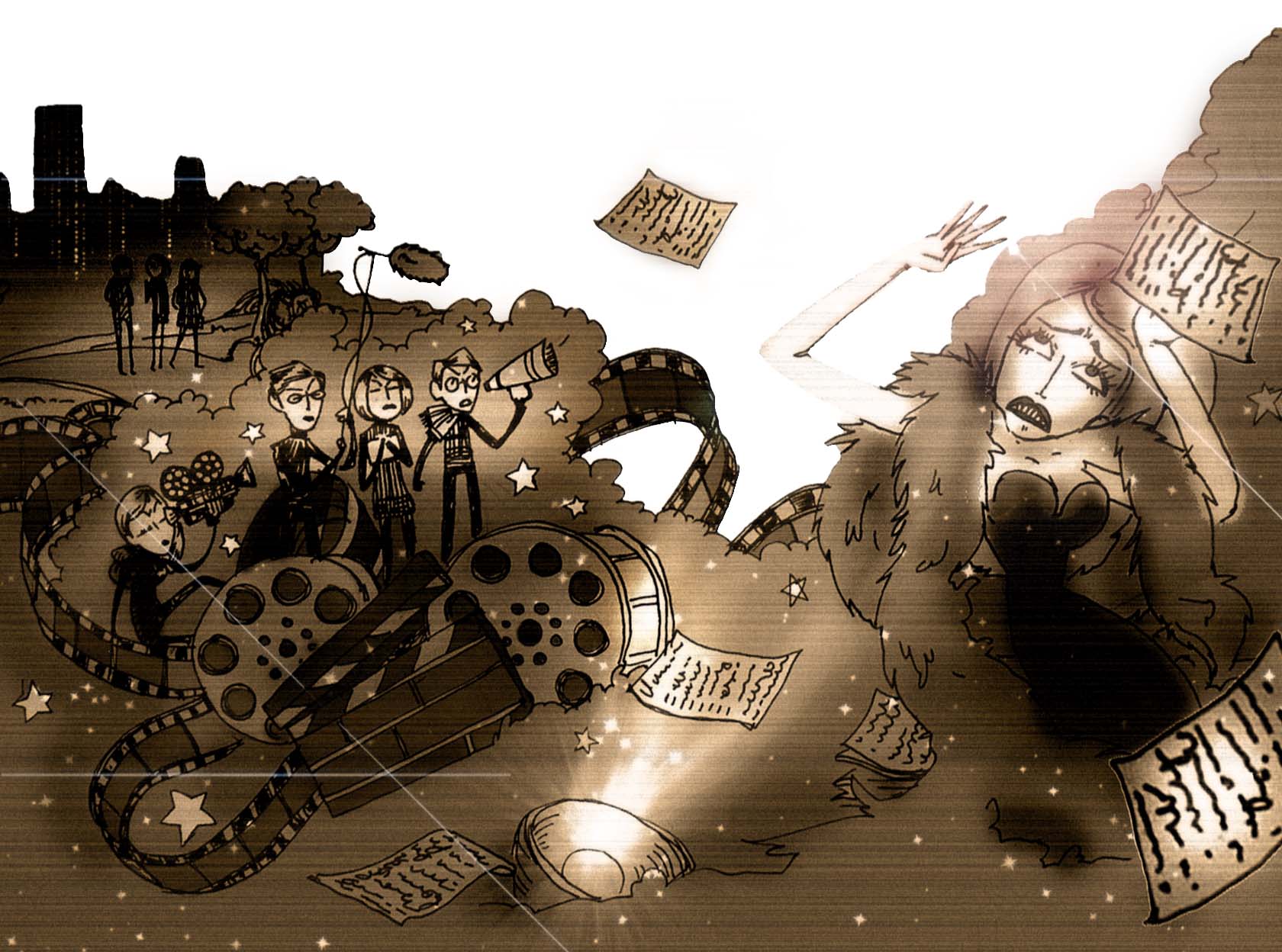A young man sits down to eat his first lobster. The sleeves of his tangerine prison jumpsuit are torn off to reveal 17 scars on his arm, one for each of his victims. The warden surveilling him from behind metal bars growls, “I’m going to love watching you die.”
This scene comes from “The Last Supper,” a 2010 short film directed by Tarique Qayumi, who was then a fourth-year graduate directing student at UCLA. When the film wrapped, Qayumi said he was certain that he had a gem on his hands, but was less certain about its prospects on the film festival circuit.
“(“˜The Last Supper’) was weird, like a “˜Twilight Zone’ episode,” Qayumi said. “And it was under 10 minutes, so it was hard to find a niche where it would fit.”
He scanned the UCLA School of Theater, Film and Television’s listserv of festivals and stumbled upon what seemed like an ideal choice: Shorttakes Film Festival, UCLA’s annual student short film festival.
Started in 1992 by the Campus Events Commission, Shorttakes was initially restricted to UCLA students, but soon expanded to all of Southern California and later to schools nationwide.
According to Ali Cottong, a fourth-year American literature and culture student and the festival’s director, Shorttakes is very small, with only about 70 submissions last year.
“We do it mostly for student filmmakers, since it gives them a chance to have their films gain exposure with our celebrity judges and also to meet other filmmakers,” she said.
The festival accepts submissions that are less than 10 minutes from graduate and undergraduate students alike, which are then screened by some of the most recognized names in the entertainment industry. Last year’s roster of judges included Nancy Cartwright, the actress who voices Bart Simpson, and Paul Schrader, screenwriter for “Taxi Driver” and “Raging Bull.”
Once the votes are tallied, 10 to 15 finalists have their films screened at a finale.
Qayumi said he was sold on the negligible submission fee of $5, the festival’s locality and the chance to be judged by experts in the field.
“The Last Supper” ended up winning the awards for “Audience Favorite” and “Best Actor.”
This spring, there will be a few key changes to the festival, which is entering its 17th year.
According to Cottong, film submission and fee payment will be entirely online in order to streamline the process. She also said she hopes to organize a postshow panel with the judges so that finalists can receive feedback and establish valuable industry contacts.
In order to attract more students, Cottong is trying to collaborate with the Hill to put on the tentatively named All-Hill Film Festival.
“It’s not 100 percent sure yet,” Cottong said. “We’ve wanted to get participation from dorm residents, which is our biggest demographic, but we feel like they might be intimidated or feel that they can’t compete.”
According to Cottong, once the festival is confirmed, CEC will place posters in the dorms and post information on the Shorttakes website. It would be a contest between four groups ““ Dykstra Hall and De Neve Plaza, Rieber Court, Hedrick Court, Sunset Village and Sproul Hall. The finalists from each group would compete, with the winner shown at the Shorttakes finale, which is free and open to anyone.
“I would definitely be interested in partaking in something like this,” said David Mireles, a third-year philosophy student and student filmmaker who competed in last fall’s Campus Movie Fest. “Having these sorts of events, bringing residents out of the halls … allows students to branch out, and I’m all for it.”
Though films screened at the Shorttakes finale tend to boast a little more professional polish than rookie home videos, Qayumi maintained that anyone looking to enter should not be discouraged.
“Whether you’re spending a lot of money or time on production value, or if you just have an iPhone, what really counts is the story,” Qayumi said. “There were some films there (at Shorttakes) shot on the cheap … that really reflected the sentiments of the college generation.”
